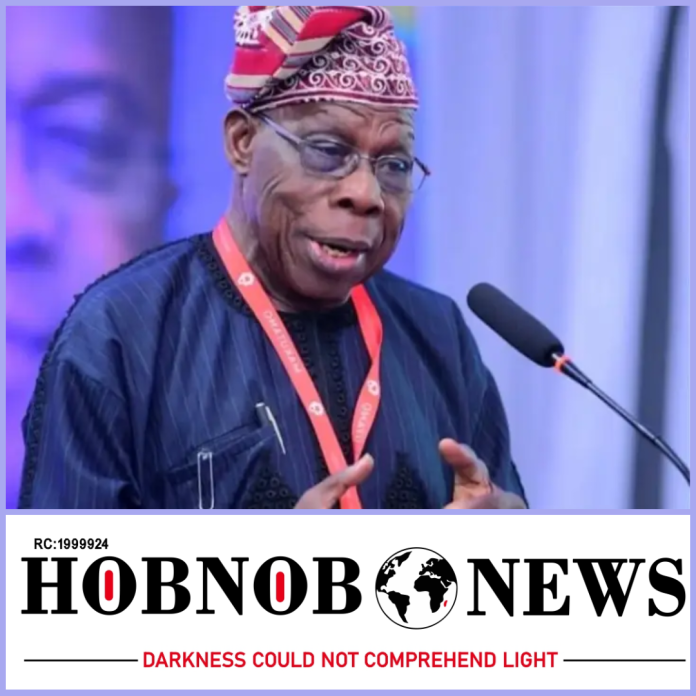Former President Olusegun Obasanjo, a prominent figure in African politics, has reignited discussions on the feasibility and efficacy of democracy as a system of government in Africa. In a thought-provoking address on Monday, during a high-level consultation on “Rethinking Western Liberal Democracy for Africa” held in Abeokuta, Obasanjo argued that democracy had been “forced” onto the continent, hindering its potential for success.
Obasanjo, known for his distinguished tenure as Nigeria’s president from 1999 to 2007, expressed his concerns about the limitations of Western-style democracy in African nations. He contended that adopting the Western model without considering African cultures, traditions, and socio-economic contexts has contributed to its lackluster performance across the continent.
The consultation, which brought together political leaders, scholars, and experts from various African countries, aimed to reevaluate the relevance of Western liberal democracy in the African context. It sought to explore alternative approaches that could better suit the diverse and unique needs of African nations.
During his address, Obasanjo underscored the need for Africans to intentionally design political systems that align with their historical, cultural, and economic realities. He suggested that Western liberal democracy, while suitable for other regions, may not be the most effective or suitable governance system for Africa.
The former president’s remarks have ignited intense debates among scholars, politicians, and citizens across the continent. Supporters argue that Obasanjo’s observations reflect the reality on the ground, where democratic systems struggle to deliver on their promises due to deeply rooted challenges such as poverty, corruption, and ethnic divisions. They argue that Africa needs a democratization process tailored to its unique circumstances.
However, critics argue that democracy, in its essence, is not inherently bound by geography or culture and that adapting it can help address inherent socio-political ills. They emphasize the importance of safeguarding democratic principles, including the rule of law, accountability, transparency, and the protection of individual rights, while adapting the system to Africa’s specific needs.
This high-level consultation on rethinking democracy in Africa comes during a time when several African countries are grappling with challenges related to governance and democratic institutions. With frequent incidences of electoral irregularities, stifling of dissent, and limited inclusivity, the conference aims to stimulate dialogue and collective efforts to address these issues.
As debates surrounding the future of democracy in Africa continue, it is clear that former President Obasanjo has ignited a crucial conversation. Identifying a governance system that reflects the values and aspirations of diverse African societies while upholding democratic ideals remains a significant challenge for the continent.

